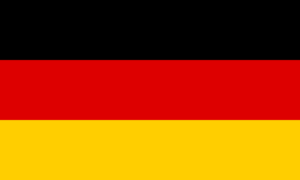
Hello language learners! 👋 Today, we’re diving into the basics of German tenses. If you’re new to German, don’t worry! We’ll break it down in a simple and fun way. Let’s explore how to talk about the present, past, and future in German. 🇩🇪✨
1. Present Tense (Gegenwart) 🌞
The present tense in German is used to talk about what’s happening right now or things that happen regularly. It’s similar to how we use the present tense in English. Here’s a quick guide:
Structure:
- Subject + Verb (conjugated) + Rest of the sentence
Example:
- English: I eat an apple.
- German: Ich esse einen Apfel. 🍎
How to Conjugate:
German verbs change based on who is doing the action. Let’s use the verb “spielen” (to play) as an example.
- Ich spiele (I play)
- Du spielst (You play)
- Er/Sie/Es spielt (He/She/It plays)
- Wir spielen (We play)
- Ihr spielt (You all play)
- Sie spielen (They play)
2. Past Tense (Vergangenheit) 📅
To talk about things that have already happened, you’ll use the past tense. In German, there are two main ways to form the past tense: the Perfekt (perfect tense) and the Präteritum (simple past tense).
Perfekt:
This is the most commonly used past tense in spoken German. It’s made using the present tense of the verb “haben” (to have) or “sein” (to be) plus the past participle of the main verb.
- Structure: Subject + haben/sein + past participle + Rest of the sentence
Example:
- English: I ate an apple.
- German: Ich habe einen Apfel gegessen. 🍏 Conjugation of “haben”:
- Ich habe (I have)
- Du hast (You have)
- Er/Sie/Es hat (He/She/It has)
- Wir haben (We have)
- Ihr habt (You all have)
- Sie haben (They have)
Präteritum:
This form is more common in writing and formal speech.
Example:
- English: I ate an apple.
- German: Ich aß einen Apfel. 🍎
3. Future Tense (Zukunft) 🚀
To talk about something that will happen in the future, use the future tense. It’s formed using the present tense of the verb “werden” (to become) plus the infinitive of the main verb.
Structure:
- Subject + werden + Infinitive verb + Rest of the sentence
Example:
- English: I will eat an apple.
- German: Ich werde einen Apfel essen. 🍏 Conjugation of “werden”:
- Ich werde (I will)
- Du wirst (You will)
- Er/Sie/Es wird (He/She/It will)
- Wir werden (We will)
- Ihr werdet (You all will)
- Sie werden (They will)
Quick Recap 📝
- Present Tense (Gegenwart): Use conjugated verbs to talk about now. E.g., Ich esse einen Apfel.
- Past Tense (Vergangenheit): Use Perfekt for spoken language (e.g., Ich habe gegessen) or Präteritum for writing (e.g., Ich aß).
- Future Tense (Zukunft): Use werden plus the infinitive verb. E.g., Ich werde essen.
That’s it for today’s quick guide on German tenses! 🎉 Keep practicing, and soon you’ll be talking about everything in German like a pro. Happy learning! 🌍📚
Leave a Reply